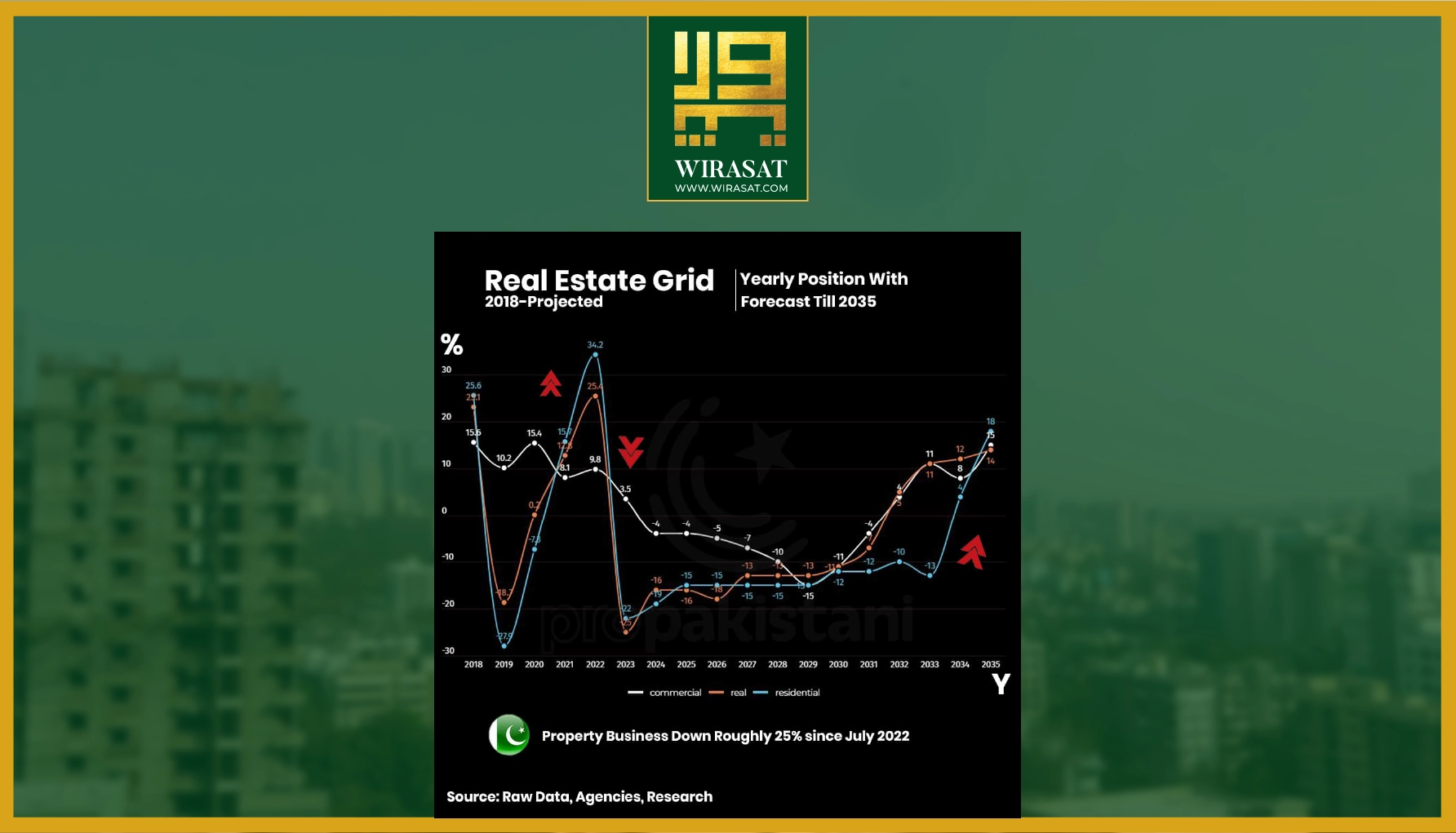Are Properties Falling in Pakistan
The economy in Pakistan is not that strong and as the inflation rises, and every industry goes down after, the first thought comes to your mind as an investor or buyer in real Pakistan is that “Is property falling in Pakistan” So you are not alone in this race every investor or buyer looking into it and here in this blog we come up with the in-depth guide about the property pricing from the recent year’s growth rate of real estate to when property started falling, is it lucrative to invest in this business and what is its future in Pakistan.
So dive into this blog to find out all the information about it or find out whether it is just a rumor or a dark truth.
History of Real Estate Property:
So let’s start with some history to get a better understanding of why and how house prices in Pakistan fall and when they will go up. So as a citizen of Pakistan, we all know that Pakistan has always gone through hard crises that directly impact all businesses in Pakistan including the real estate housing market.
In the early 2000s, the property value was not that high and the rate of buying, selling, or investing in the real estate business in Pakistan was also not that high.
But after 2010 this business spread widely all over the country, the prices exceeded 10 million rupees and a huge ratio of people wanted to get into this to make a secure future. And when in 2012 after the introduction of CPEC in Pakistan it gave a huge boost to the Pakistan economy and as well property prices in Pakistan went up and gave too much profit to the investors as they earned higher ROI than their expectations.
Unfortunately, from 2013 to 2018 the rate of terrorism was at its peak, and because international investors were afraid of doing business in Pakistan, that’s why the real estate business in Pakistan was on the verge of prediction as it always goes up or down.
But at some point, we see some sort of positively increasing rate, and sometimes the rate of property falling in Pakistan. This is at that moment this is considered as one of the unpredictable businesses and the attention of buyers, sellers, or investors goes down. Overall real estate Pakistan is one of the top choices for making a passive income deal, however, the ups and downs are part of any business. But with the right strategy and understanding of the market demographics anyone can close a profitable deal in real estate.
The Growth Rate of Real Estate From 2018-2023:
As you can see this graph shows how property falling in Pakistan or goes up from time to time from 2018 to so on.
As you can see in the graph when the Covid19 came to Pakistan in 2019 it directly affected all businesses including real estate Pakistan, at the end of 2020 we saw a massive property pricing growth rate in real estate which stayed by the end of 2022, and then according to the Pakistan real estate forecast 2023, this property rate does down in very badly in 2023 and even the Bahria Town becomes bankrupt according to some rumors.

The Reason Why Property Falls in Pakistan:
Now look at some reasons for the property prices in Pakistan:
Black money:
First of all, skillful accounting is done with extreme caution. This could be a key factor for this industry’s decline. Zero tolerance for black money is now in place by national authorities. However, in the past, this country was 70 percent in black money.
Thus, people who had previously bought properties using illegal means like bribes or tax evasion are now required to account for their actual source of income from which they could afford those assets originally. As such, buyers who have bought any property through other than legitimate means now fear and dread investing in the sector. Therefore, investing in the real estate housing market is not seen as an ideal choice today. That is one important reason why real estate prices are low until 2023 and nobody is investing in it.
High-interest rates:
Interest rates are very important when it comes to house prices in Pakistan. When interest rates are high, this sends a signal to the people to sell their properties and deposit money in banks where they can earn more. However, when there are lower interest rates, there is always more demand for properties leading to a rise in prices. So the first and most important reason why property prices dropped tremendously in Pakistan is due to high rates of interest.
Property buying restrictions for non-filers:
The stringent restrictions placed on the acquisition of properties by non-filers and the additional requirements for Pakistanis residing abroad have exacerbated the already declining luxury property market. With so few people willing to buy houses on behalf of those who don’t file, and because of this trend towards illiquidity, there is now little hope left anywhere in the country that you may be able to sell a piece of property in Pakistan real estate 2024 at its previous price on account of lack of significant purchasers or sellers in terms of similar categories.
Busting illegal housing schemes:
Also, due to the National Accountability Bureau (NAB) crackdown on illegal housing societies, property falling in Pakistan. The government’s attempts to demolish illegal constructions and shut them down have created panic among prospective investors. This has resulted in a reduced investment rate in the real estate sector which has subsequently caused a substantial drop in the price of properties.
Conclusion:
Buying real estate in Pakistan can prove to be a rewarding investment. Understanding the ownership of such properties and relevant legal procedures are essential aspects that must not be ignored. Through extensive research, identifying the appropriate properties, and employing sound experts you will make yourself poised for success when investing in property.
Keep in mind that the best area to buy real estate properties depends on your financial capabilities and what you intend to achieve. Whether it is residential or commercial property conducting an on-site visit or realistic bargaining are crucial steps. Eventually, buying land in Pakistan provides avenues for development and fiscal security.




